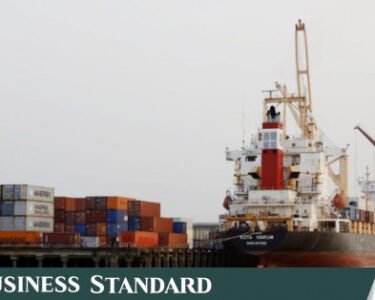Electric car sales in Germany plummeted by 39pc last month as the withdrawal of government tax breaks triggered a collapse in demand.
The number of battery-electric cars sold across Europe’s largest economy in December fell to 33,651, down from 54,654 over the same period last year.
This led to a broader 10pc drop in electric vehicle (EV) sales across Europe as a whole, according to the European Automobile Manufacturers’ Association (ACEA).
In total, EVs accounted for 13pc of the overall market share in 2024, behind petrol cars and hybrid-electrics, which accounted for 33pc and 31pc respectively.
European sales fell off after a surge in deals the year prior, when subsidies for EV purchases peaked at €9,000 (£7,550) per car.
Registrations last year were also hit by manufacturers holding back EV deliveries so that they would count towards new emission standards being introduced by the European Union.
Demand for EVs crashed across Germany as separate figures last week revealed that the economy shrank for the second year in a row in 2024.
The scale of the challenge facing Germany’s economy was highlighted in a new survey from think tank ZEW, which found that economic sentiment fell from 15.7 to 10.3 in December.
Achim Wambach, president of ZEW, said: “A lack of private household spending and subdued demand in the construction sector continues to stall the German economy.
“If these trends continue in the current year, Germany will fall further behind the other countries of the eurozone.”
Meanwhile, French EV sales also took a battering in December, contracting by 20pc according to ACEA.
Like Germany, France is preparing to axe subsidies for electric cars, reducing incentives to between €2,000 and €4,000 based on household income, down from as much as €7,000.
The withdrawal of state support for electric cars threatens to reduce the competitiveness of European models amid an anticipated flood of cheaper alternatives from China.
However, struggles across Europe led to Britain becoming Europe’s largest EV market for the first time last year, as tough net zero sales targets forced manufacturers to offer steep discounts.




